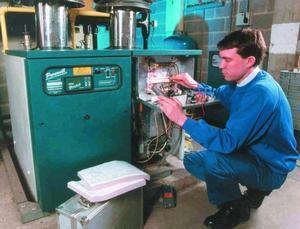In order to meet the demand for ever-increasing rates of energy efficiency, manufacturers have developed advanced designs for boilers and burners. But ongoing efficiency in real life service can be significantly reduced by ineffective servicing. This concern has driven the need for a mechanism to ensure best practice servicing to ensure ongoing optimum efficiency.
Together, the manufacturers from the British Combustion Equipment Manufacturers Association, (BCEMA) set up a working group whose aim is to protect and promote the interests of the industry. As part of this work, BCEMA has introduced a log book scheme for commercial boilers.
The inspiration for the log book was taken from the motor industry. Similarly they look to burn fuel efficiently and effectively, and have had to embrace greater sophistication and complexity, yet still improve reliability. The intention of the commercial boiler log book is to create historical data on a boiler, from boiler/burner commissioning to service information. This will, if properly recorded, help reduce servicing costs, facilitate planned maintenance, enable whole-life costings to be calculated, and even ultimately allow planned replacement.
The first section of the log book records the commissioning checks and the boiler/burner settings and performance. This information will then form the basis of reference material for the product.
After that, any work carried out on the boiler, whether it is for a routine maintenance visit or a breakdown call out, will be recorded. Information on performance checks as well as the work and parts used will be recorded and signed for. The performance checks should be compared to the original commissioning settings, ensuring that the boiler is performing safely and efficiently. In only a short space of time, this will provide invaluable historical data that may dramatically reduce servicing costs.
The log book will allow facilities managers to monitor costs, check what work was carried out and by whom, and that the equipment is operating efficiently. Service engineers can quickly ascertain what works have been carried out previously and if there is a fault condition or, in the event of a recurring fault, know what remedial action has been tried before.
The log book scheme also tackles the problem of non-competent people working on equipment by the need to check and record key measurements and who carried out the work. There has certainly been a concern amongst manufacturers regarding the competence of some callers to manufacturers’ help lines. They have felt that perhaps they are unwittingly helping individuals not qualified to work on gas or oil boiler equipment.
The log book ensures traceability and therefore accountability. The engineer has to sign for all works carried out on site, which usually deters the cowboy, and also has the added benefit of offering the potential for CORGI auditors to check log books and prove service engineers’ competence without additional paperwork and checks.
The log book also has a wider implication. Inspectors could, at some future date, measure achieved efficiencies, and calculate the contribution towards meeting government targets for environmental improvements following Kyoto. It is hoped that specifiers will value the benefit the log book provides and insist that it is part of the manufacturers’ supply.
Source
Building Sustainable Design
Postscript
Steve Bratcher is chairman of the BCEMA steering committee for log books, and deputy chairman of Hamworthy Heating. For further details or to request a Hamworthy log book, telephone 01202 662555.






















No comments yet